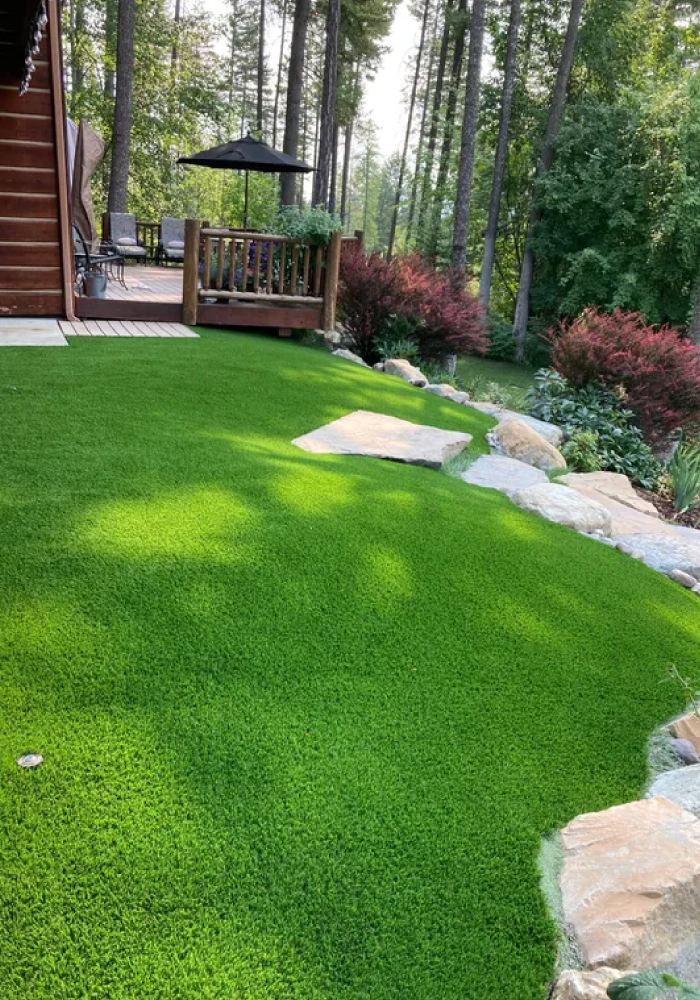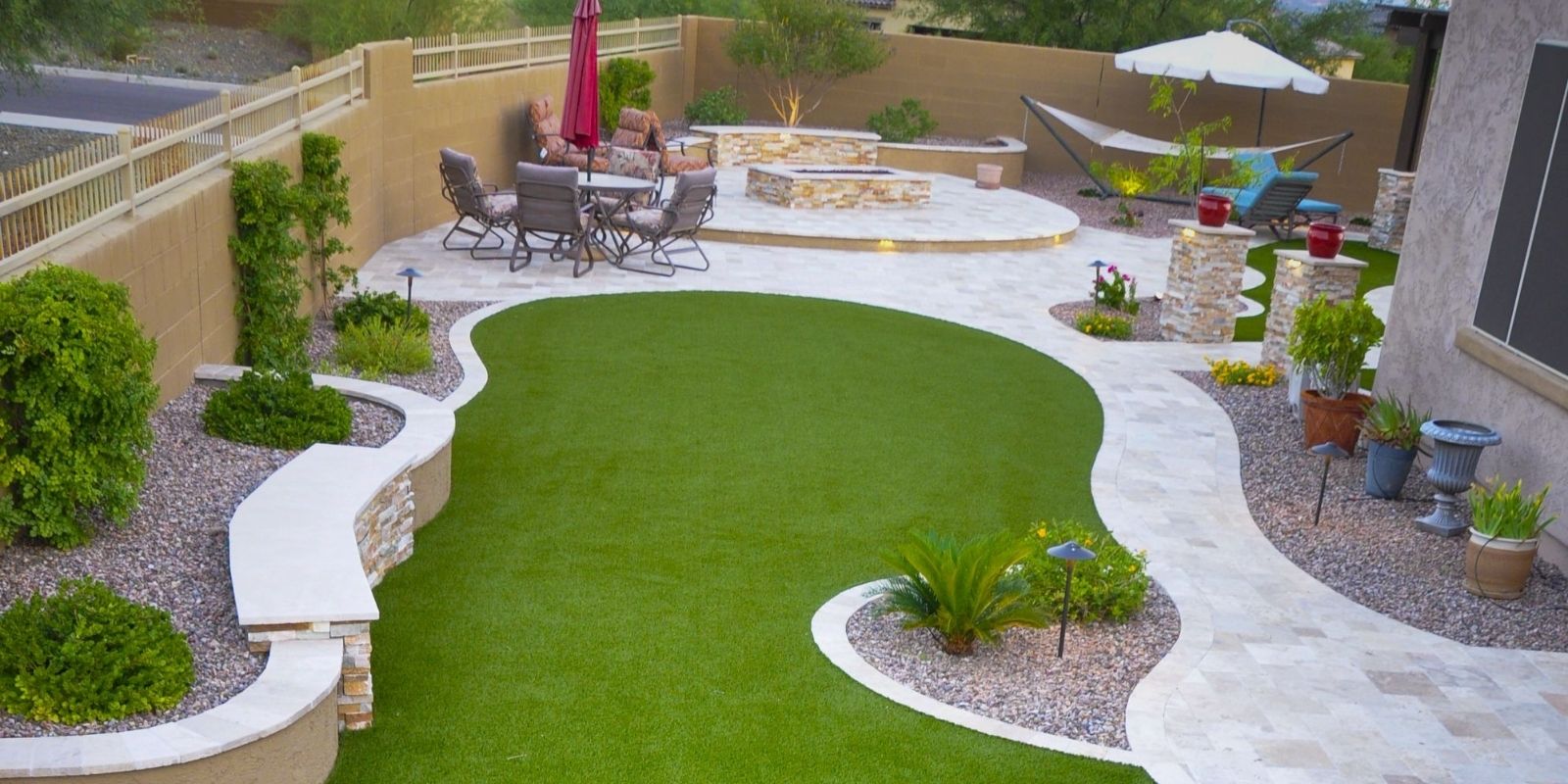Delve Into the Environmental Advantages of Opting for Synthetic Grass Solutions
The fostering of synthetic lawn solutions provides an engaging possibility to deal with pushing ecological challenges. By substantially reducing water usage and lessening the application of hazardous chemicals, these options not just promote sustainable landscaping however additionally protect local environments.
Water Conservation Benefits
One of the most considerable benefits of synthetic grass is its ability to preserve water. Standard lawn yards call for substantial irrigation, particularly in areas susceptible to drought or water limitations. On the other hand, synthetic grass does not require watering, dramatically decreasing the general demand for water resources. This function is especially helpful in dry areas where water shortage is a pushing problem.
By getting rid of the need for routine watering, artificial grass contributes to lasting landscape techniques and assists reduce the ecological influence of extreme water consumption. The preservation of water expands to the reduction of drainage, which can lead to dirt erosion and waterway contamination.
In addition, the installation of synthetic lawn permits municipalities and house owners to allocate water resources much more effectively, focusing on vital usages such as alcohol consumption water and agriculture. The shift towards man-made lawn not only advertises responsible water usage but also lines up with broader environmental goals focused on protecting natural sources.
As neighborhoods increasingly prioritize sustainability, the water preservation benefits of synthetic grass offer an engaging situation for its adoption in commercial and household landscaping projects.
Lowered Chemical Use
The transition to synthetic grass significantly lowers the dependence on chemical therapies frequently used in natural grass maintenance. Conventional grass monitoring typically includes the application of herbicides, pesticides, and plant foods to promote growth and control insects. These chemicals can pose threats to human health, local wildlife, and the setting, contributing to soil and water contamination.
In contrast, man-made grass eliminates the requirement for these damaging materials. By lessening the release of artificial substances right into the ecosystem, synthetic grass advertises much healthier soil and water systems.
In addition, the absence of chemical runoff linked with fabricated grass installations aids safeguard local rivers from air pollution, sustaining water life and maintaining biodiversity. Arizona artificial turf. As areas increasingly focus on lasting practices, going with synthetic turf provides a feasible solution that straightens with ecological preservation goals. Through this shift, residential or commercial property owners can appreciate lavish green areas without compromising eco-friendly wellness, leading the way for a much more sustainable future
Lower Carbon Footprint

Moreover, the setup of artificial grass can cause substantial water conservation. All-natural grass require substantial quantities of water for watering, which not only includes in the carbon impact connected with water removal and treatment but check this additionally pressures neighborhood water resources. In contrast, synthetic grass requires marginal upkeep, requiring no watering, thus considerably reducing water usage and its associated energy expenses.
In addition, the longevity of synthetic grass contributes to its reduced carbon effect. With a lifespan of as much as 15 years or more, the demand for regular replacements is diminished, resulting in much less waste and lower power intake in manufacturing and taking care of typical yard alternatives. Generally, synthetic grass presents a lasting alternative for eco mindful landscape design.
Habitat Conservation
Habitat preservation is a crucial consideration in the discussion over landscape design options, specifically when contrasting synthetic lawn to natural lawn. All-natural yard yards frequently need extensive upkeep, consisting of making use of herbicides, pesticides, and plant foods, which can negatively impact regional communities. These chemicals can leach into the dirt and waterways, damaging indigenous vegetation and fauna and interrupting regional environments.
Artificial grass removes the demand for dangerous chemicals, thereby shielding close-by wildlife and preserving the stability of surrounding environments. The setup of man-made grass can lead to the conversion of previous grass areas into more biodiverse landscapes, such as pollinator gardens or native plant locations, which can sustain neighborhood wild animals.
Inevitably, the change to he has a good point artificial lawn not just saves water and minimizes maintenance efforts but also cultivates an extra unified connection between human activities and the natural setting, advertising habitat preservation at the same time.
Long-Term Sustainability
Lasting sustainability is an essential factor in evaluating the benefits of fabricated grass over conventional lawn lawns. One of one of the most considerable benefits of artificial lawn is its toughness; it can last as much as 15-20 years with minimal upkeep, whereas natural yard needs frequent reseeding and substitute. This longevity lowers the requirement for constant sources, such as water, fertilizers, and pesticides, which are important for keeping a healthy yard lawn.
In addition, man-made lawn adds to a decrease in carbon emissions related to lawn treatment equipment. Standard lawns commonly require gas-powered mowers, leaners, and blowers, all of which add to air contamination. Artificial turf companies phoenix. On the other hand, synthetic lawn eliminates the requirement for such tools, advertising a cleaner environment
Additionally, the manufacturing of synthetic lawn increasingly uses recycled products, boosting its sustainability profile. As makers take on green practices, the environmental footprint of man-made lawn remains to diminish.

Conclusion
The fostering of artificial lawn options presents substantial environmental benefits, consisting of substantial water conservation, reduced reliance on damaging chemicals, and a lower carbon footprint. Moreover, man-made grass help in protecting natural habitats by reducing land disturbance and advertising lasting sustainability via making use of long her latest blog lasting products. Collectively, these elements underscore the possibility of synthetic grass to add positively to ecological health and wellness and provide a sensible choice to standard landscaping methods in a significantly resource-conscious world.
In contrast, fabricated grass does not require watering, considerably decreasing the total need for water resources. By minimizing the launch of synthetic substances into the community, artificial lawn promotes much healthier soil and water systems.
In addition, the setup of artificial lawn can result in substantial water preservation. In contrast, fabricated grass requires minimal upkeep, calling for no watering, thus significantly minimizing water use and its associated power prices.
